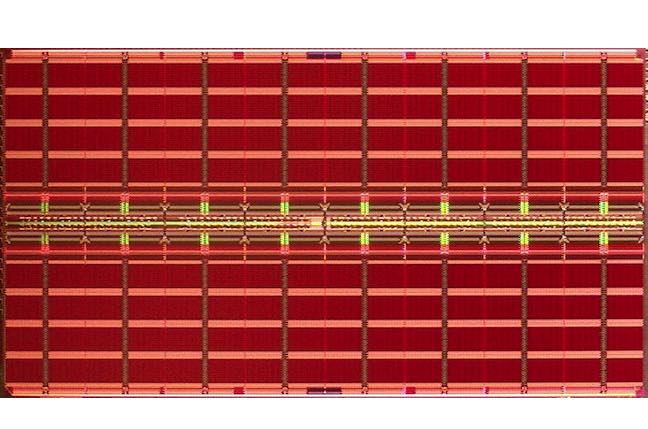A sprinkling of storage news briefs to start the week.
Exagrid refresh deduplicates deduplicated files
Target deduplicating backup appliance supplier Exagrid has refreshed its appliance software to v5.2.2.
This release adds improved data deduplication for Veeam Software; the combination of Veeam’s deduplication and “dedupe friendly” compression, along with ExaGrid’s deduplication can now achieve a combined deduplication ratio of up to 14:1 for VM backups.
A new deduplication algorithm improves deduplication ratios over its previous version for backup applications that use Changed Block Tracking (CBT) or incremental backups. Most backup applications use CBT.
Joint Commvault and Exagrid customers can have Commvault deduplication enabled and ExaGrid will further deduplicate the Commvault deduplicated data to improve the deduplication ratio by a factor of 3X up to a combined deduplication ratio of 20:1.
Windows Active Directory domain credentials can now be used to control access to the ExaGrid management interface, providing authentication and authorisation to the web GUI.
Veritas’ NetBackup Accelerator technology shortens backup windows by sending only changes for both incremental and accelerated full backups, synthesizing the full backup from previous changes using the OST interface. ExaGrid can take in and deduplicate NetBackup Accelerator data and, in addition, reconstitute the accelerated backup into its fast restore Landing Zone.
Exagrid points out that, with its Landing Zone technology, Veeam can boot a VM from ExaGrid in seconds to minutes versus hours for deduplication appliances such as Dell EMC Data Domain. They store everything as deduplicated data, and that requires data rehydration for each request.
Everspin results
MRAM developer Everspin reported revenues of $8.6m for the second 2019 quarter, down from $10.8m a year ago. It made a loss of $3.67m, better than the year-ago loss of $7.37m.
The company is working to bring its Spin Transfer Torque MRAM into use by enterprise storage drive suppliers. MRAM is a byte-addressable, non-volatile memory that operates at DRAM-like speed.
Gross margin for the second quarter of 2019 was 46.5 per cent, and compares to 42.1 per cent in the second quarter of 2018 and 47.7 per cent in the previous quarter.
Operating expenses decreased sequentially by $1.3m to $7.6m as the 1Gb STT-MRAM device transitioned from R&D into production.

Everspin partners with Global Foundries for MRAM die production. Phison Electronics and Sage Microelectronics provide native support for Everspin’s 1Gb STT-MRAM in their enterprise SSD controller chips.
It expects total revenue in the range of $8.5m – $9.0m next quarter.
Broadcom goes up Glass Creek
Broadcom has announced Glass Creek, a universal NVMe over Fabrics storage adapter for bare metal and virtualized servers, using the Stingray SoC (System-on-Chip). RoCE and NVMe/TCP are supported.
Glass Creek is operating system independent and supports various flavours of Linux, Windows, VMware ESXi and Microsoft Hyper-V hypervisors. It has RAID HW acceleration, deduplication and security features, and offers 1 million IOPS across a 50Gbit/s link.
Lite-On could turn its SSD lights off
Taiwan media outlet Digitimes speculates – Lite-On Technology is thinking of selling its SSD operation. The in-house Lite-On SSD business was set up as the Lite-On Storage subsidiary in April 2019.
Digitimes said Toshiba Memory Corporation, which supplies NAND Chips to Lite-On Storage, could buy the unit.
Lite-On announced a refreshed EP4 PCIe SSD with 960GB and 1.92TB capacities at the 2019 Flash Memory Summit. It uses 96-layer TLC (3bits/cell) Toshiba flash, The drive is up to 15 per cent faster than the prior version, with sequential read/write speeds of 2.2/1.1 GB/sec. The endurance is up to 3 drive writes a day.
The Lite-On Technology group is selling its Lite-On Semiconductor to US vendor Diodes for $428m.
Toshiba Memory Corp Results
Toshiba Memory Corp (TMC) reported F1Q20 (ended June 30) revenues of ¥214.2bn (c$1.95bn).
There was a loss of ¥95.2bn ($86.67m) following a loss of ¥19.3bn ($175.7m) in the prior quarter. This quarter’s loss includes a ¥34.4 billion (~$312m) cost for the Yokkaichi fab outage.
TMC saw low single-digit ( 1 – 3) percentage bit growth in the quarter, which was better than the mid-single digit (4 – 6) percentage decline in the first quarter.
Short items
Actifio has expanded Actifio GO SaaS on Google Cloud to full “Copy Data Management-as-a-Service.” Actifio claims this is the first SaaS offering that eliminates the need for on-premises storage or software license management,. The software provides backup, near-instant recovery and database cloning on Google Cloud Platform. It’s for on-premises VMs, is app-aware for the major databases, and integrated with Google Big Query.
Azure Archive Storage prices have been cut by up to 50 per cent in some of its 29 regions. This is the Azure equivalent of Amazon’s Glacier cold data storage service and exists alongside Azure’s Hot and Cool access tiers.
DataStax, which supplies a database built on Apache Cassandra, said production support on VMware vSAN now includes hybrid and multi-cloud configurations.
GigaSpace is offering its InsightEdge In-Memory Computing platform on the AWS Marketplace for big data analytics work. The software co-locates business logic, analytics, and data processing in the same memory space to speed performance. It runs analytics and machine learning models simultaneously on streaming, transactional and historical data, to improve the speed and quality of insights from big data.
IBM has published a Spectrum LSF guide to “Using LSF on NVIDIA DGX.” LSF is a workload management platform and job scheduler.
Lenovo and AMD have announced new single-socket servers, for edge and data-intensive workloads. Pivot3 says the new Lenovo servers combined with its software will provide an edge computing video security solution capable of supporting up to 33 per cent more video cameras per node than similar systems.
Research house TrendFocus said 78.56 million disk drives were shipped in the 2019 second quarter, 1 per cent more than the first quarter. Seagate supplied 31.39 million (up 0.3 per cent Q/Q), Western Digital 27.74 million (down 0.4 per cent), and Toshiba 19.43 million (up 5.3 per cent).
People
Cloud backup and storage management service supplier Datto has recruited Robert Petrocelli as its CTO. He was a senior software architect at Oracle.
Backup-as-a-Service supplier Druva has hired Thomas Been as CMO. He was previously CMO at IT management and analytics software supplier Tibco.
WDC EVP and CTO Martin Fink is to retire and moves to an advisory role with the company. Siva Sivaram has been appointed President of Technology and Strategy. He was EVP for Silicon Technology and Manufacturing. Fink has been involved with the RISC-V processor design effort and was deeply involved with The Machine concept when previously at HPE.
Veeam has recruited Nigel Houghton as EMEA director of alliances. He comes from being HPE’s EMEA director of alliances and was an EMEA channel sales director at Scality before that.








